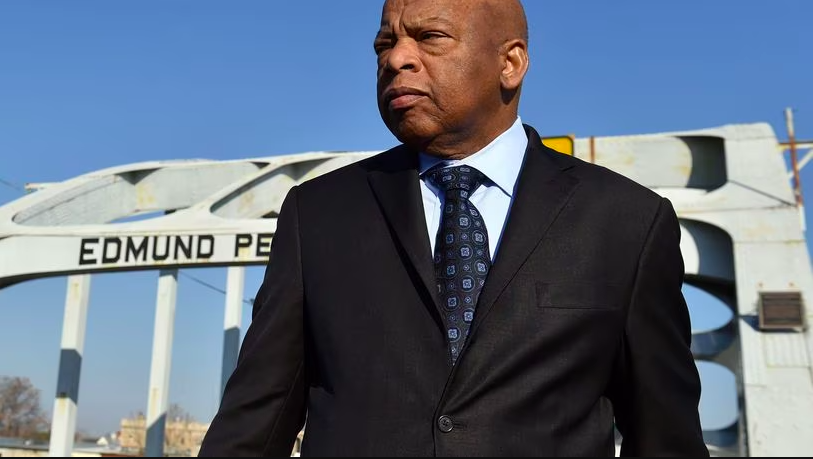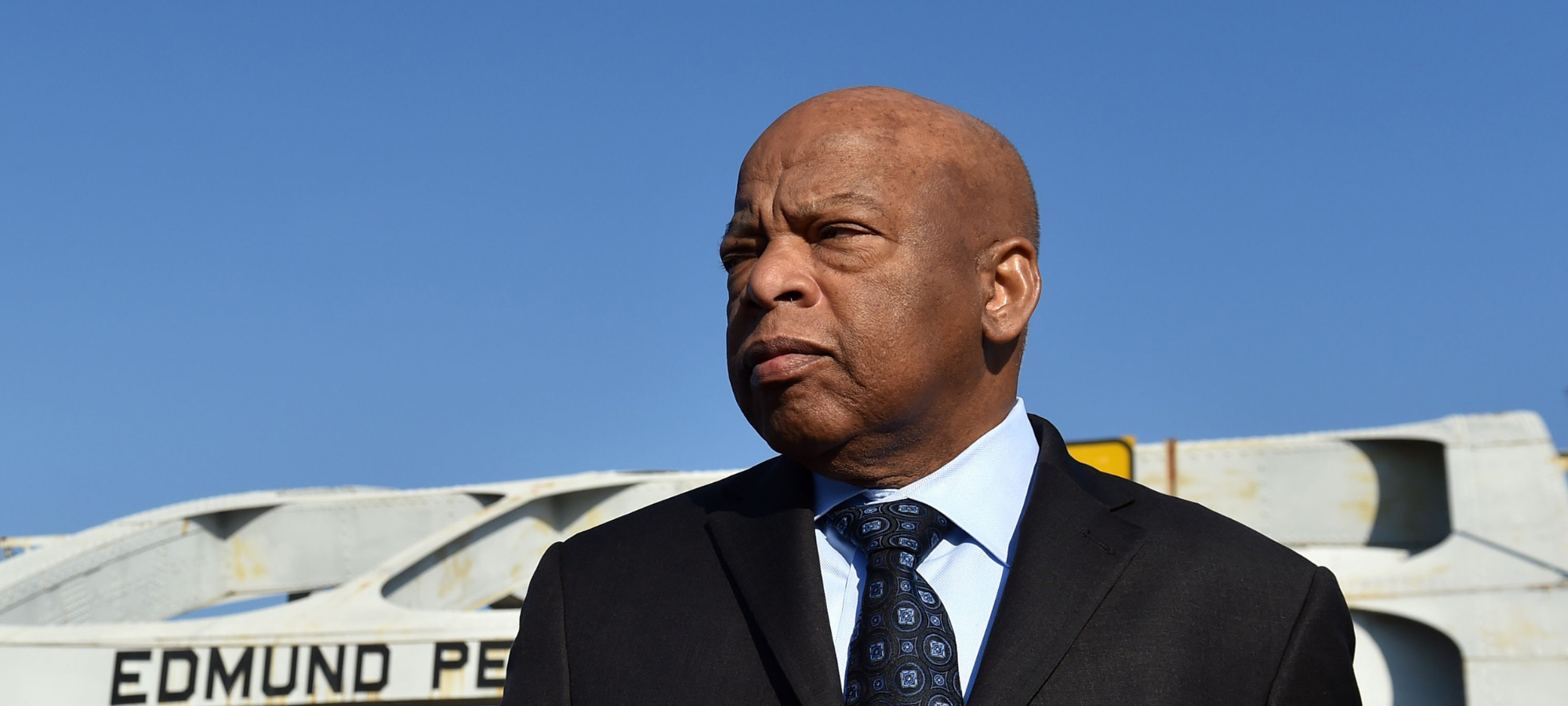
Congressman John Lewis on the Edmond Pettus Bridge on Feb. 14, 2015. On March 7, 1965, Hosea Williams and John Lewis led 600 civil rights activists across the bridge in a march for voting rights. (Credit: Brant Sanderlin/AJC/TNS)
By Linda Earley Chastang
President and CEO, The John and Lillian Miles Lewis Foundation Inc.
Congressman John Lewis believed in hope and the promise of America, despite its history. Beaten, bloodied and repeatedly arrested, Lewis, who would have been 83 this February, never embraced violence. He instead envisioned the “Beloved Community” and embraced “good trouble.”
As a young man inspired by the nonviolent resistance of Dr. Martin Luther King Jr. and Rosa Parks, John participated in sit-ins at segregated lunch counters in Nashville. The sit-ins spread across the South and led to the Freedom Rides, where Lewis and his fellow activists braved baseball bats and iron pipes to integrate interstate bus and travel facilities.
Lewis was 23 when, on the steps of the Lincoln Memorial at the dais with Martin Luther King Jr. at the March on Washington, he called for passage of the Civil Rights Act and courageously proclaimed, “‘One man, one vote’ is the African cry. It is ours too. It must be ours!”
The following year, he and his fellow activists launched Freedom Summer in Mississippi. They would register nearly half a million people to vote.
Lewis was 25 years old when his skull was fractured in a beating on the Edmund Pettus Bridge for leading a march to help register Black voters in Alabama. He crossed that bridge with 25,000 people in tow two weeks later on the heels of President Lyndon Johnson saying, “Their cause must be our cause too. Because it is not just Negroes, but really it is all of us, who must overcome the crippling legacy of bigotry and injustice … . And we shall overcome.” What became known as Bloody Sunday led to the passage of the Voting Rights Act.
In 1970, Lewis became head of the Voter Education Project, which in the decade following the passage of the Voting Rights Act moved the number of Black people registered to vote in the South from 2 percent to 60 percent and forever changed the political landscape of the South.
In 1979, President Jimmy Carter appointed Lewis to head VISTA. In 1981, Lewis began a five-year stint on the Atlanta City Council, where he always stood for ethics in government. In 1985, he made a successful run for Congress and went on to represent Georgia’s 5th district and be reelected 18 times.
He never stopped; he never slowed down.



 As a nation, if we care for the Beloved Community, we must move our feet, our hands, our hearts, our resources to build and not tear down, to reconcile and not to divide, to love and not to hate.
As a nation, if we care for the Beloved Community, we must move our feet, our hands, our hearts, our resources to build and not tear down, to reconcile and not to divide, to love and not to hate.